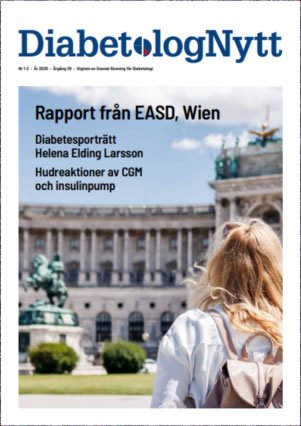Internet-based psycho-educational programs are beneficial for young patients with type 1 diabetes as they transition into adolescence, according to a study published online April 11 in Diabetes Care.
Margaret Grey, D.R.P.H., R.N., from the Yale University School of Nursing in New Haven, Conn., and colleagues randomized 320 youth (age 11 to 14 years) to either the TeenCope or Managing Diabetes Internet-based psycho-educational intervention programs. Hemoglobin A1c (HbA1c) and quality of life (QOL) were the primary outcomes, while coping, self-efficacy, social competence, self-management, and family conflict were secondary outcomes. After 12 months, youth were invited to cross over to the other program. Data were collected at baseline and at three, six, and 12 months; follow-up data were obtained for crossover participants at 18 months.
The researchers found that, over 12 months, youth in both groups had stable QOL and minimal increases in HbA1c levels, with no significant differences in primary outcomes between the groups. Compared with those who completed only one intervention, participants who completed both interventions had significantly lower HbA1c; higher QOL, social acceptance, and self-efficacy; and lower perceived stress and diabetes family conflict.
”Internet interventions for youth with type 1 diabetes transitioning to adolescence result in improved outcomes, but completion of both programs was better than only one, suggesting that these youth need both diabetes management education and behavioral interventions,” the authors write
Abstract
Internet Psycho-Education Programs Improve Outcomes in for Youth With Type 1 Diabetes
- Margaret Grey, DRPH, RN, FAAN1⇑,
- Robin Whittemore, PHD, APRN, FAAN1,
- Sangchoon Jeon, PHD1,
- Kathryn Murphy, PHD, RN2,
- Melissa S. Faulkner, DSN, RN, FAAN3,
- Alan Delamater, PHD4,
- for the TeenCope Study Group*
+ Author Affiliations
1Yale University School of Nursing, New Haven, Connecticut
2Department of Pediatrics, Children’s Hospital of Philadelphia, Philadelphia, Pennsylvania
3School of Nursing, University of Arizona, Phoenix, Arizona
4Department of Pediatrics, University of Miami, Miami, Florida
- Corresponding author: Margaret Grey, margaret.grey@yale.edu.
Abstract
OBJECTIVE The purpose of this study was to determine the efficacy of two internet-based psycho-educational programs designed to improve outcomes for youth with type 1 diabetes transitioning to adolescence.
RESEARCH DESIGN AND METHODS The study was a multisite clinical trial of 320 youth (age 11–14 years; 37% minority; 55% female) randomized to one of two internet-based interventions: TeenCope or Managing Diabetes. Primary outcomes were HbA1c and quality of life (QOL). Secondary outcomes included coping, self-efficacy, social competence, self-management, and family conflict. Data were collected at baseline and after 3, 6, and 12 months online. Youth were invited to cross over to the other program after 12 months, and follow-up data were collected at 18 months. Analyses were based on mixed models using intent-to-treat and per-protocol procedures.
RESULTS Youth in both groups had stable QOL and minimal increases in HbA1c levels over 12 months, but there were no significant differences between the groups in primary outcomes. After 18 months, youth who completed both programs had lower HbA1c (P = 0.04); higher QOL (P = 0.02), social acceptance (P = 0.01), and self-efficacy (P = 0.03) and lower perceived stress (P = 0.02) and diabetes family conflict (P = 0.02) compared with those who completed only one program.
CONCLUSIONS Internet interventions for youth with type 1 diabetes transitioning to adolescence result in improved outcomes, but completion of both programs was better than only one, suggesting that these youth need both diabetes management education and behavioral interventions. Delivering these programs via the internet represents an efficient way to reach youth and improve outcomes.
Nyhetsinfo
www red DiabetologNytt

